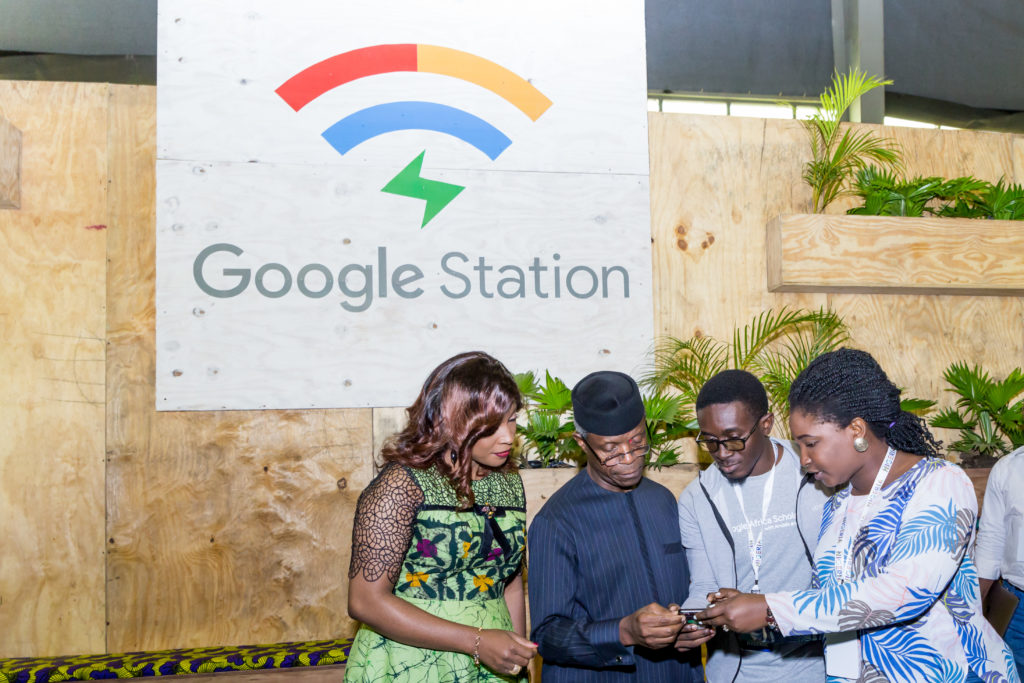The second Google for Nigeria event was held in Lagos on Thursday with the announcement of the launching of Google Station for Nigeria to make the internet more easily accessible for Nigerians.
Google Station for Nigeria is a program to provide high quality, high-speed Wi-Fi hotspots in partnership with 21st Century, one of the largest fibre network providers in Nigeria.
“Google Station will be rolling out in 200 locations in five cities across Nigeria by the end of 2019, bringing Wi-Fi to millions of people,” says Google Nigeria Country Director, Juliet Ehimuan-Chiazor. “Sites include markets, transport hubs, shopping malls, universities, and more. Nigeria is the fifth country to get Google Station, after India, Indonesia, Thailand and Mexico.”
Google according to a statement is also making search more powerful for ordinary Africans. Job search launched in March in South Africa, Nigeria and Kenya, and is now rolling out in 29 new countries. In Nigeria, Google is launching a search experience that allows users to explore health conditions based on symptoms, as well as recipe search for anyone who needs a little food inspiration.
StreetView’s Discover Nigeria gallery has been expanded to include more of Nigeria’s wonders including the National Museum in Lagos, Olumo Rock in Abeokuta, Millenium Park in Abuja, and Lekki Conservation Centre.
Additionally, Google announced the update of several products from its “Go” initiative, which were launched in the past year. The Go product suite aims to give people with low bandwidth connections and low-RAM devices the best possible Google experience. These new features include:
-
Google Go: will soon read web pages out loud and highlight each word so users can follow along.
-
YouTube Go: users will be able to browse downloaded YouTube Go videos, saved as .yt files, right from the gallery on their phones.
-
Google Maps Go: will now provide users with turn-by-turn directions, whether they’re travelling by car, by bus or on foot.
-
Android Go: Launched in Nigeria and 29 other African countries earlier this year, the Go OS gives people coming online for the first time a powerful and reliable smartphone experience. Across Africa, Transsion, Nokia, Huawei, and Mobicel have launched various devices, starting at just over 17,000 Naira.
Over 2.5 million of the 10 million Africans Google promised to train by 2022 have been trained through the Digital Skills Programme. Google has trained a further 9,000 Africans in mobile app development and Google’s Launchpad Accelerator Africa initiative graduated 12 promising startups from across the continent in June.
The application process of the ongoing Google Impact Challenge, part of Google’s $20m Google.org commitment to Africa over the next five years, closed with over 5,500 entries. The process of selecting the 36 finalists has begun.
“We are offering new solutions to improve and expand access in Nigeria and across Africa; these launches demonstrate our commitment to Africa through products built to help people in Africa to make the most of the Internet,” concludes Ehimuan-Chiazor.


